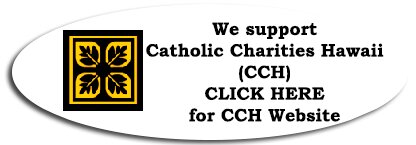Best Government Relations & Lobbying Lawyers in Hawaii
Share your needs with us, get contacted by law firms.
Free. Takes 2 min.
Or refine your search by selecting a city:
List of the best lawyers in Hawaii, United States
About Government Relations & Lobbying Law in Hawaii, United States
Government relations and lobbying law in Hawaii refers to the rules, regulations, and practices governing how individuals and organizations interact with state and local government officials in an effort to influence legislation, policy decisions, or regulatory actions. This area of law covers both the rights and the restrictions of lobbyists, public officials, and entities seeking to participate in the political and legislative process. In Hawaii, lobbying activities are closely monitored to ensure transparency, prevent corruption, and promote fair access to government decision-making.
Why You May Need a Lawyer
A lawyer specializing in government relations and lobbying law can provide crucial guidance in a number of situations. Individuals, businesses, nonprofits, or public interest groups may need legal help if they are:
- Seeking to influence proposed legislation or regulatory changes
- Wanting to ensure compliance with state lobbyist registration and reporting requirements
- Responding to investigations or allegations of improper lobbying activities
- Unsure how to legally communicate or coordinate with government officials
- Concerned about gift-giving, campaign contributions, or conflict of interest rules
- Looking to build effective, lawful advocacy strategies within Hawaii’s political landscape
- Facing potential sanctions or penalties for noncompliance with ethical rules
Legal counsel can help you avoid costly mistakes, protect your organization’s reputation, and navigate complex legal requirements unique to Hawaii.
Local Laws Overview
Hawaii’s approach to government relations and lobbying is regulated primarily by state statutes and overseen by the Hawaii State Ethics Commission. Key legal aspects include:
- Registration Requirements: Individuals and entities engaged in lobbying must register with the Hawaii State Ethics Commission if they meet specified thresholds for activity and compensation.
- Reporting Obligations: Regular reports must be filed disclosing lobbying activities, expenditures, and certain communications with public officials.
- Gift and Contribution Rules: Strict limitations apply to the provision of gifts or campaign contributions to public officials, aimed at preventing undue influence and conflicts of interest.
- Definitions of Lobbying: Hawaii law clearly defines lobbying to include both direct communication with officials and grassroots efforts aimed at influencing legislation or administrative action.
- Penalties: Violation of these laws can result in fines, suspension, or even criminal charges in cases involving bribery or unlawful benefits.
- Transparency and Disclosure: All lobbying activity is subject to transparency standards established to protect the integrity of the legislative process and ensure public awareness.
Understanding and adhering to these laws is essential for anyone engaging with Hawaii’s governmental bodies.
Frequently Asked Questions
What is considered lobbying in Hawaii?
Lobbying in Hawaii includes communicating with lawmakers, officials, or employees in an effort to influence legislative or administrative action, both directly and through grassroots campaigns.
Do I need to register as a lobbyist in Hawaii?
You must register if you spend more than five hours and receive or spend over $1,000 in a six-month period on lobbying activities.
What types of activities require reporting?
Any activity aimed at influencing official action, including direct meetings, drafting bills, organizing campaigns, or hiring representatives, must be reported if it meets state thresholds.
Who oversees lobbying compliance in Hawaii?
The Hawaii State Ethics Commission is responsible for administering and enforcing the state’s lobbying laws.
Are there restrictions on gifts to officials?
Yes, lobbyists and lobbying organizations are prohibited from giving gifts intended to influence official action. There are strict value limits and disclosure requirements for any permitted gifts.
Is grassroots lobbying regulated in Hawaii?
Yes, efforts that urge the public to contact officials or participate in advocacy campaigns are subject to registration and reporting if they meet the legal thresholds.
What are the penalties for violating lobbying laws?
Penalties for violations can include monetary fines, suspension of lobbying privileges, or criminal charges in severe cases.
Do nonprofit organizations need to comply with lobbying laws?
Yes, nonprofits must comply if their activities qualify as lobbying under state laws, regardless of their tax status.
Can I hire a lawyer to represent me in lobbying matters?
Absolutely. Many attorneys specialize in government relations and can provide legal and strategic assistance for lobbying efforts.
How can I find out if someone is a registered lobbyist in Hawaii?
Lobbyist registration records are public and maintained by the Hawaii State Ethics Commission. You can contact the Commission for information.
Additional Resources
Several resources are available for those seeking additional information or assistance regarding government relations and lobbying law in Hawaii:
- Hawaii State Ethics Commission - Offers guidance, registration forms, and public records on lobbying activities
- Hawaii Revised Statutes, Chapter 97 - Details the state laws governing lobbying
- Hawaii Bar Association - A resource for finding experienced government relations attorneys
- League of Women Voters of Hawaii - Provides educational materials on good government practices
- Office of Information Practices - Assists with public records and transparency in government affairs
Next Steps
If you believe you need legal assistance with government relations or lobbying in Hawaii, follow these steps:
- Consult the Hawaii State Ethics Commission for current requirements and forms
- Gather all relevant documentation of your lobbying activities and communications
- Consider scheduling a consultation with a local attorney who specializes in government relations or administrative law
- Prepare specific questions and a summary of your activities to ensure an efficient legal consultation
- Remain proactive in maintaining compliance by regularly reviewing statutory changes and updating your filings as required
By understanding your legal obligations and seeking experienced counsel, you can navigate Hawaii’s government relations and lobbying landscape with confidence and integrity.
Lawzana helps you find the best lawyers and law firms in Hawaii through a curated and pre-screened list of qualified legal professionals. Our platform offers rankings and detailed profiles of attorneys and law firms, allowing you to compare based on practice areas, including Government Relations & Lobbying, experience, and client feedback.
Each profile includes a description of the firm's areas of practice, client reviews, team members and partners, year of establishment, spoken languages, office locations, contact information, social media presence, and any published articles or resources. Most firms on our platform speak English and are experienced in both local and international legal matters.
Get a quote from top-rated law firms in Hawaii, United States — quickly, securely, and without unnecessary hassle.
Disclaimer:
The information provided on this page is for general informational purposes only and does not constitute legal advice. While we strive to ensure the accuracy and relevance of the content, legal information may change over time, and interpretations of the law can vary. You should always consult with a qualified legal professional for advice specific to your situation.
We disclaim all liability for actions taken or not taken based on the content of this page. If you believe any information is incorrect or outdated, please contact us, and we will review and update it where appropriate.
Browse government relations & lobbying law firms by city in Hawaii
Refine your search by selecting a city.











